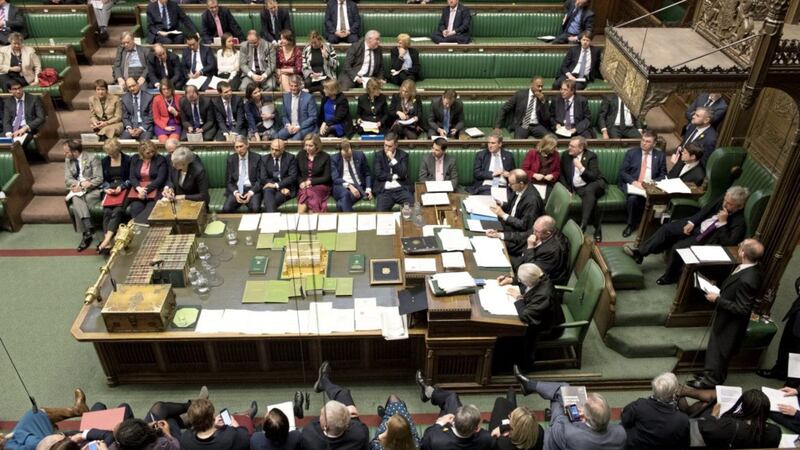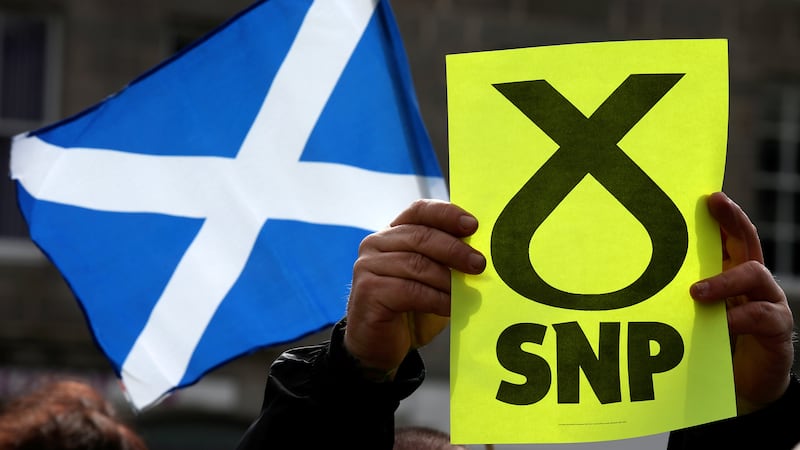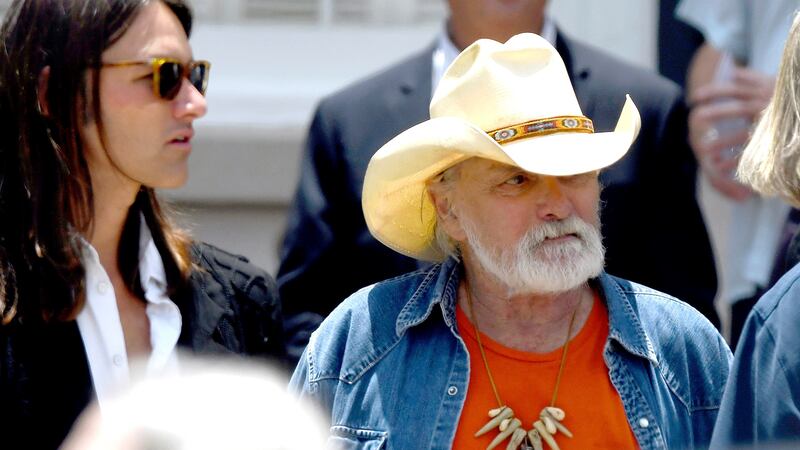Negotiations on Theresa May's EU Withdrawal Agreement were mired in deadlock after what both Downing Street and the European Commission admitted were "difficult" talks in Brussels on Tuesday.
The commission said there was still "no solution" to the impasse over the Irish backstop following the meeting between the EU's chief negotiator Michel Barnier and Attorney General Geoffrey Cox and Brexit Secretary Stephen Barclay.
Downing Street said there had been a "robust exchange of views" as Mr Cox tried to persuade the EU side to accept that legally-binding changes were needed if the deal was to win the support of the House of Commons.
The meeting took place as Theresa May prepared for next week's crunch "meaningful vote" in the Commons on her Brexit Withdrawal Agreement.
The prime minister has said she wants legally-binding changes to the backstop – intended to prevent the return of a hard border on the island of Ireland – to ensure the UK is not tied to EU rules indefinitely, in order to convince MPs to back her deal.
However, Mr Barnier told the weekly meeting of the College of Commissioners in Brussels that the negotiations were proving "difficult" and a way forward had not been found.
The commission's chief spokesman Margaritis Schinas told reporters: "Michel Barnier was present and informed the commissioners that while the talks take place in a constructive atmosphere, discussions have been difficult.
"No solution has been identified at this point that is consistent with the Withdrawal Agreement, including the protocol on Ireland/Northern Ireland which, as you all know, will not be reopened."
Mrs May's official spokesman told reporters at Westminster: "My understanding is that the talks were difficult and there was a robust exchange of views. However, talks are ongoing.
"The EU continues to say that it wants this to be resolved and that it wants the UK to leave with a deal. Parliament has been clear that for this to happen, we require legally-binding changes which mean that the UK can't be trapped in the backstop indefinitely.
"That is what we will continue to pursue."
Leaving Brussels on Wednesday morning, Mr Cox told Sky News: "I can't reveal the discussions. These are private and confidential discussions. But we are into the meat of the matter now. Both sides have exchanged robust, strong views and we are now facing the real discussions. Talks will be resuming soon."
Mr Barclay said there had been "constructive engagement", adding: "The discussions are at a sensitive point. I am not going to comment on the details."
Mrs May's spokesman said: "I don't think that anybody was under any illusion that this wouldn't be a difficult process. So it is proving, but we remain determined to secure the changes that Parliament needs."
Meanwhile, International Trade Secretary Liam Fox has refused to rule out backing a no-deal Brexit if the Withdrawal Agreement is voted down by MPs next week.
Dr Fox, who campaigned for Leave in the 2016 referendum, told the Commons International Trade Committee that no-deal was "hugely sub-optimal, compared to getting a deal".
Asked whether the government would back no-deal in the vote scheduled for the following day if the agreement fails, he said: "Potentially all things are possible."
With the scheduled date of Brexit just 23 days away on March 29, Environment Secretary Michael Gove warned that MPs may be asked to give up their Easter break – due to begin on April 4 – to deal with the avalanche of legislation which needs to be passed.
He told a parliamentary committee: "The Chief Whip has reminded Conservative MPs that there may not be an Easter recess."
With Tory Brexiteers still refusing to commit to voting for the agreement, ministers have acknowledged they may need the support of opposition MPs if the deal is to get through Parliament on Tuesday.
However, the latest attempt to win over wavering Labour MPs with new measures to protect workers' rights outside the EU has met with a dismissive response from trade unions.
Under the proposals, MPs will be allowed to vote on whether to take new EU workplace rules, rather than them being automatically written into UK law.
Trades Union Congress general secretary Frances O'Grady said the announcement was "blatant window dressing" that left protections under threat.
"Working people need a cast-iron, legal guarantee that rights like these will be safe after Brexit, and that guarantee should be written into the deal," she said.
Jeremy Corbyn is to meet with Conservative MPs backing a Norway-style relationship with the EU after Brexit, Labour has said.
A party spokesman said Mr Corbyn would be seeing former ministers Sir Oliver Letwin and Nick Boles as part of a group of Labour and Tory MPs who support the so-called "Common Market 2.0" model of a close economic relationship.
The spokesman said the meeting was to "discuss how to achieve a deal that would be good for jobs and could bring Leave and Remain voters together".








